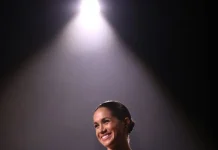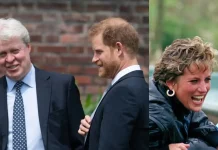
In the realm of the British royal family, Prince Harry and Prince William, as brothers and heirs to the throne, have both been in the public eye for years. However, there’s an intriguing phenomenon that has unfolded over time—Prince Harry often seems to capture more public affection than his elder brother, Prince William.
In this blog post, we’ll delve into the factors contributing to this perceived preference and explore the nuances of the public’s affinity towards Prince Harry.
The Charismatic Persona
One of the key elements that contribute to Prince Harry’s widespread popularity is his charismatic persona. Known for his affable nature, approachability, and a knack for connecting with people from all walks of life, Prince Harry exudes a relatable charm that resonates with the public. His willingness to engage in candid conversations and his down-to-earth demeanor make him more accessible and endearing.
A Modern Approach to Royal Duties
Prince Harry has been at the forefront of modernizing the royal family’s approach to their duties. His involvement in numerous charitable causes and his advocacy for mental health awareness have positioned him as a forward-thinking and compassionate figure. Prince Harry’s openness about his own struggles with mental health has fostered a connection with the public, breaking down barriers and stigmas surrounding the topic.

Personal Challenges and Resilience
Prince Harry’s public narrative has been marked by personal challenges and resilience. From the loss of his mother, Princess Diana, at a young age to his military service and subsequent struggles with mental health, Prince Harry’s journey has been one of highs and lows. His willingness to share his vulnerabilities with the public has garnered empathy and admiration, creating a deeper emotional connection with the audience.
A Relatable Family Man
Prince Harry’s role as a husband and father has further endeared him to the public. His marriage to Meghan Markle, a former actress and advocate, brought a fresh and diverse perspective to the royal family. The couple’s decision to step back from senior royal duties and their pursuit of a more independent life resonated with many who admired their commitment to prioritizing family and personal happiness.

the couple does not want anybody’s help

Meghan is her real self. Not a hypocrite

They love Each other | most important thing to know

Harry Lives his life as a normal person

The Contrast with Prince William
While Prince William is undoubtedly respected for his dedication to royal duties and his composed demeanor, he has often been seen as more reserved compared to his younger brother. Prince William’s approach, characterized by a sense of duty and responsibility, aligns more closely with traditional royal expectations. While this garners respect, it may contribute to a perception of a more formal and distant personality.
Media Narrative and Public Scrutiny
The media narrative surrounding Prince Harry and Prince William has played a significant role in shaping public perceptions. Prince Harry’s interactions with the media have often been characterized by a push for privacy and a desire to protect his family. This stance has garnered sympathy, especially considering the intense media scrutiny Princess Diana faced during her lifetime.
In contrast, Prince William, being in a more traditional royal role, has faced media attention that aligns with the expectations placed on the future king. This divergence in media interactions may contribute to the perceived warmth and relatability of Prince Harry.

The Influence of Generational Shifts
As the younger of the two brothers, Prince Harry represents a new generation within the royal family. His more progressive and relatable approach resonates with a demographic that values authenticity, diversity, and a departure from traditional norms. Prince Harry’s appeal is, in part, a reflection of the changing expectations and preferences of a modern audience.
In conclusion, the reasons behind Prince Harry’s perceived higher level of public affection are multifaceted. His charismatic persona, modern approach to royal duties, resilience in the face of personal challenges, relatability as a family man, media narrative, and alignment with generational shifts all contribute to his widespread popularity.
It’s important to note that public preferences are subjective and can evolve over time. As both brothers continue to navigate their roles within the royal family, their individual journeys will shape the public’s perception, highlighting the dynamic nature of royal popularity.











